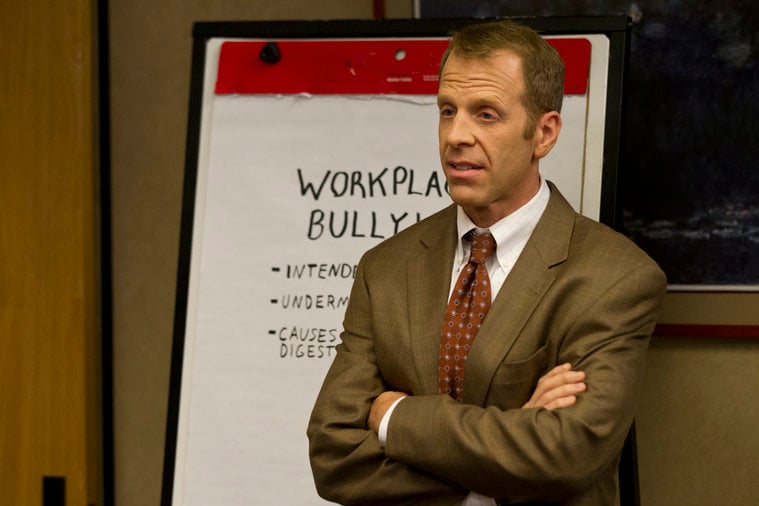Your #Career : 6 Things You Should Never Tell Human Resources…HR Reps want to Help you Out, But only IF it’s for the Good of the Company Where you’re Employed.
Human resources managers can be great people to know. If your company has employee assistance programs, they’ll hook you up. If you need help filling out disability paperwork or you’d like to know more about your salary and benefits, they’re the people you want to befriend.

But HR reps have a unique position in the company. One of their main job roles is to support employees and help them through any rough spots, but they also are employed by the company first. In other words, they’ll want to help you out, but only if it’s for the good of the company where you’re employed.
“A good many HR pros go into this as a career path because they are passionate about helping people. But remember, the HR department’s job is to retain a highly-skilled and productive workforce. Anything that demonstrates you are not going to live up to this goal, including anything you disclose that could potentially be harmful to the company, is subject to their discretionary action,” wrote Tess C. Taylor, a human resources expert at PayScale.
In most cases, you won’t (and shouldn’t) have a relationship with your HR rep that’s as filled with animosity as The Office‘s Michael Scott and Toby Flenderson. But still, there are reasons you also can’t be best buddies. Here are six things you’re probably better off not mentioning.
1. “I found a second job at night.”
As an addition to this, “moonlighting” shouldn’t enter your vocabulary if you’re in the HR office. You might really need the extra cash, and you might be keeping that second job completely separate from your main position. But even so, it will make your HR rep question your commitment to your full-time gig, human resources expert Susan M. Heathfield wrote for About.com. “They become concerned that you may be job searching because the current job either doesn’t pay for your living expenses or you need additional challenges,” she said.
If this is the case, you’re more likely to be passed over for promotions, and if you are late or unavailable for certain projects, your HR rep will likely blame it on the second job, whether that’s accurate or not.
If your company requires you to disclose second jobs in your employee contract, don’t try to hide it — that will likely be worse for you. But make sure when you have that discussion, you’re able to give specifics about your availability, and stress that this job comes first. Discuss the second job as little as possible, suggests U.S. News & World Report, focusing instead on how you’ll continue to excel at the one paying for your benefits.
Like this Article ? Share It ! You now can easily enjoy/follow/share Today our Award Winning Articles/Blogs with Now Over 2.5 Million Growing Participates Worldwide in our various Social Media formats below:
FSC LinkedIn Network: (Over 15K+ Members & Growing !) www.linkedin.com/in/frankfsc/en
Facebook: (over 12K) http://www.facebook.com/pages/First-Sun-Consulting-LLC-Outplacement-Services/213542315355343?sk=wall
- Google+: (over 800K)https://plus.google.com/115673713231115398101/posts?hl=en
- Twitter: Follow us @ firstsunllc
educate/collaborate/network….Look forward to your Participation !
Continue of article:
2. “Please don’t tell … “
In many cases, what you tell your HR rep will remain confidential. But a good rule of thumb is that if you’re discussing something illegal going on in your company, or you’ve been harassed or assaulted in any way, it won’t stay quiet for long. In many of those situations, HR will have a legal requirement to report wrongdoing.
In addition, expect anything you say to your HR rep to get back to your boss eventually. “HR works in that difficult space between employees and management, and must act on serious issues they learn about, whether you want them to act or not. Go to HR for help in solving problems, but not as a substitute for a best friend or neighbor,” Bruce Clarke, president and CEO of CAI, a human resource management firm, told CBS.
3. “My FMLA leave was the best vacation yet.”
Chances are, if you were helping a sick family member or your first child just arrived and you were on paternal leave, you couldn’t say this honestly anyway. But don’t come back to the office focused on your previous time off — come back and talk with HR about how to move forward. Otherwise, they’ll question your commitment, and you’ll stunt your chances of moving upward.
“You don’t want to dwell on why you took any leave (parental or otherwise) because it’s not relevant, and you want to move on to what’s relevant” — like how your skills and experience can continue helping the company, Caroline Ceniza-Levine told CBS.
What’s more, don’t start your extended paternal leave by telling your HR rep you’re thinking about making it a full-time gig. You might find yourself reassigned to less-desirable projects — or a less amenable office — when you return, even if you come back knowing you’d like to stay in the workforce. It’s happened before.
4. “I slept with … “
Maybe kissing and telling is your thing. If it is, save it for your buddies at the bar — not the HR office. This is the case even if it’s an in-office relationship — especially if it was with someone you work with on a daily basis. Most of the 2,300 respondents in a Business Insider survey said they don’t believe they should have to notify HR in the first place (92%), and more than 80% of respondents said it’s generally OK to sleep with someone who works for the same company.
However, you don’t want your work judged on your romantic abilities, or your mistakes chalked up to office love triangles. Plus, most HR managers don’t need to be a part of the office gossip in the the first place. “I have better things to do than deal with who slept with who, or who’s talking about you behind your back. Sometimes I feel like a high school guidance counselor,” one HR manager told Reader’s Digest.
5. “I finally settled the lawsuit with my last employer.”
You might have had totally legitimate reasons for filing a legal complaint against your last boss or company and be ready for a fresh start at your new position, but there’s never going to be a good time to bring that up to HR.
“HR departments live in fear of lawsuits – even the good, ethical, painstakingly fair departments,” writes Heathfield. Not only will this make them suspicious of your motives, but it could also be perceived as a menacing tactic. “HR staff also regards the fact that you share this information with them as potentially threatening to them and your employer,” she said.
What’s more, nothing will get a HR rep’s hackles up like the mention of litigation. “HR professionals are truly an employer’s first line of defense against employment law claims like discrimination and retaliation,” says the Society for Human Resource Management. If you want to stay in the good graces of your company, avoid mentioning this unless you plan to actually sue and likely walk away from your position.
6. “My spouse might be transferred to another city.”
Unless you know for sure that your significant other’s job is moving — and you’re going with him or her — don’t bother giving HR a heads-up that’s longer than your customary notice. It’s in situations like this where you’ll need to be your own advocate, because the HR department will only be concerned about limiting the fallout. You won’t get promoted, you won’t get extra projects, and you might even start to see some of your job duties given to other people — all to prepare for the possibility that you might move away.
“This is more career busting than telling your employer that you are job searching, because the employer will perceive that you have less control over the outcome,” Heathfield writes.
Follow Nikelle on Twitter @Nikelle_CS
Cheetsheet.com | July 5, 2016 | Nikelle Murphy

